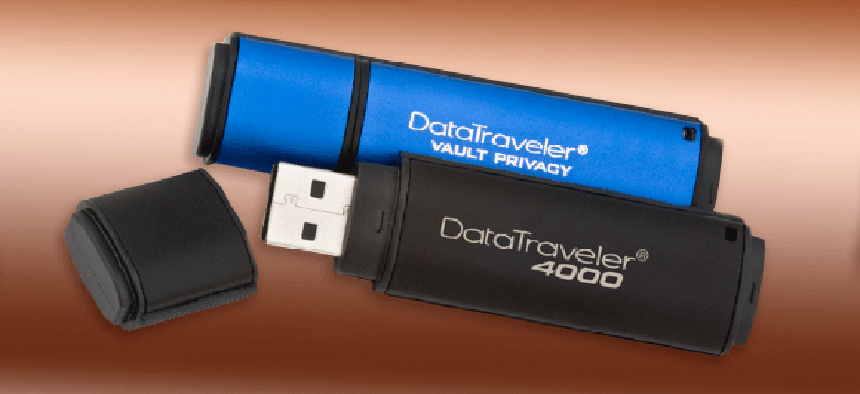Kingston adds malware scanner to its secure drives


Connecting state and local government leaders
The drives use scanning technology from ESET and ClevX to check for spyware, Trojans, worms, rootkits and viruses that might otherwise get onto a network.
When key drives were first released, everyone, including public-sector workers, embraced them. Then there was a bit of a backlash in government circles, with some agencies gluing their USB ports closed to prevent unauthorized devices from connecting because the drives offer a window for malware to enter networks. In recent years removable media has been at the center of major security events, as a vehicle of infection for the infamous Stuxnet worm and as a data exfiltration vector associated with the Flame virus.
Today, flash drives are just as convenient as when they were first released, but many also contain high levels of security, which has helped bring them back into government.
Kingston Digital, the flash memory affiliate of Kingston Technology Co., is looking to fight malware on portable drives with scanning technology from ESET and ClevX. The combination extends ClevX DriveSecurity powered by ESET’s proactive portable anti-malware technology to Kingston’s DataTraveler 4000 and DataTraveler Vault Privacy secure USB flash drives.
"Portable media is a common source of malware infection,” said Andrew Lee, CEO of ESET North America. “People often carry sensitive personal files on their USB drives, and they often don’t realize that their drive can be infected when plugged into a computer, and then that infection can be transferred to other machines. Together with Kingston and ClevX, we can offer a solution which keeps the contents of USB flash drives safe and malware-free and prevents malware from spreading via removable media."
According to Kingston, enterprise users can easily and immediately access ESET’s malware protection upon initialization of the Kingston secure USB flash drives with a strong password. There is no need for management configuration, making it easy for the end user and saving the IT department valuable setup time. Upon logging in and entering a password, the ESET engine scans for spyware, Trojans, worms, rootkits and viruses, without conflicting with the host resident anti-virus software, then notifies the user to take action if malware is detected. It also provides automatic hourly updates when an Internet connection is available.
NEXT STORY: For DARPA, it's all about surprises




